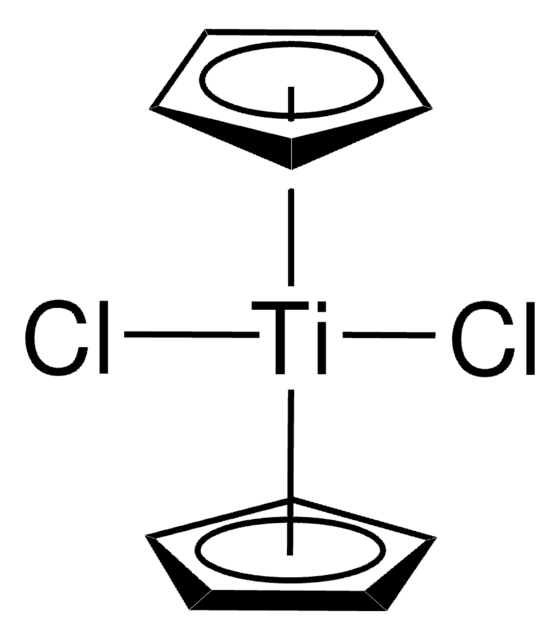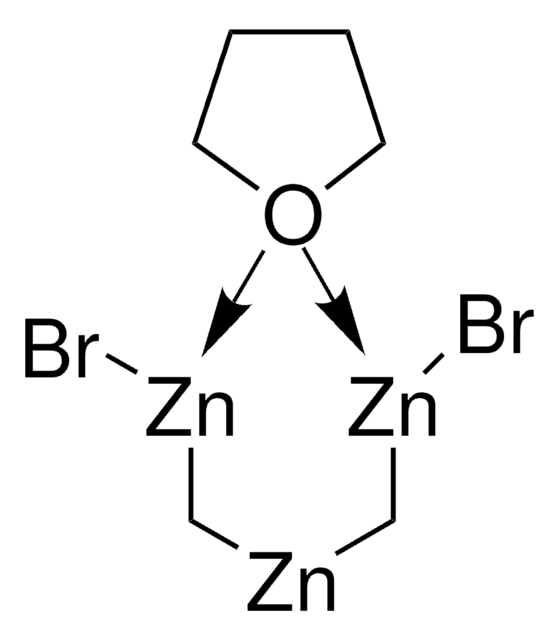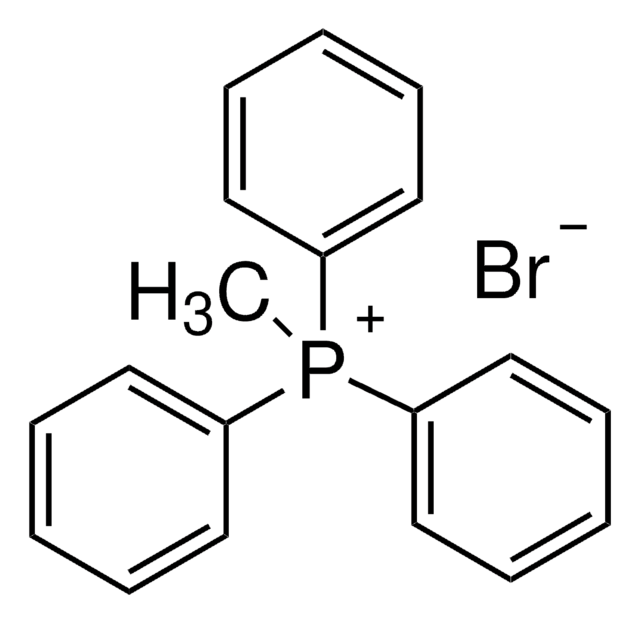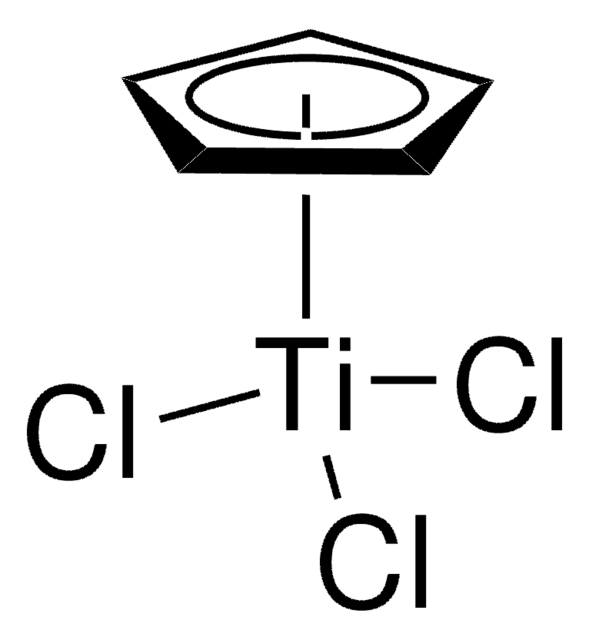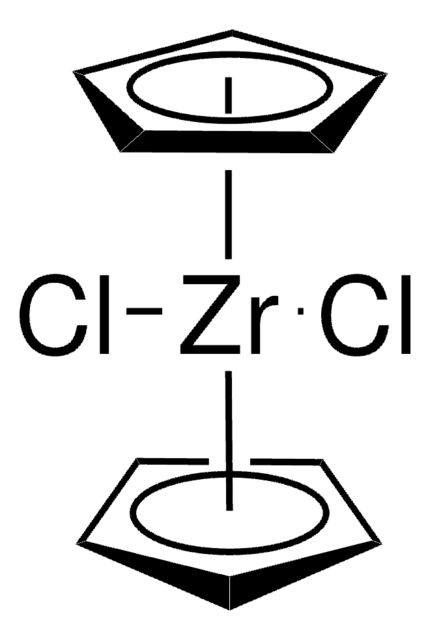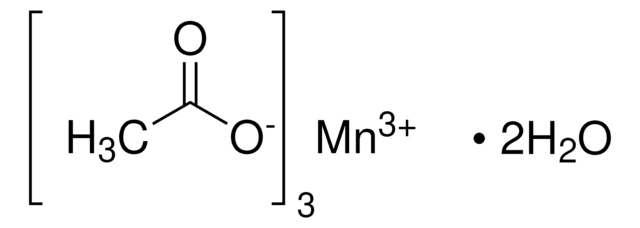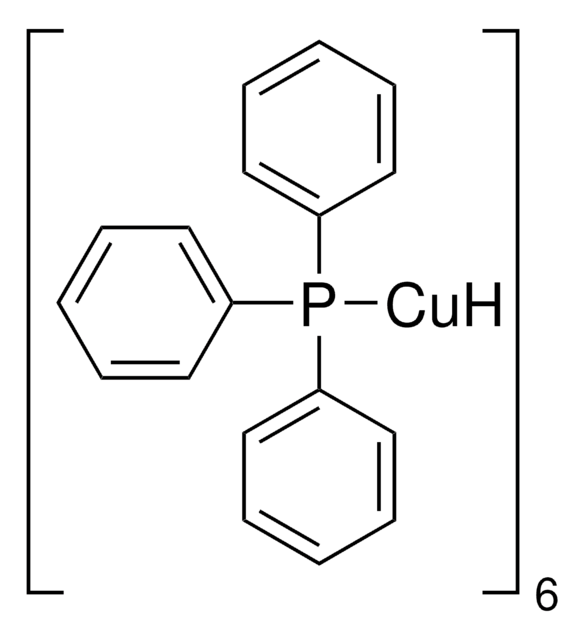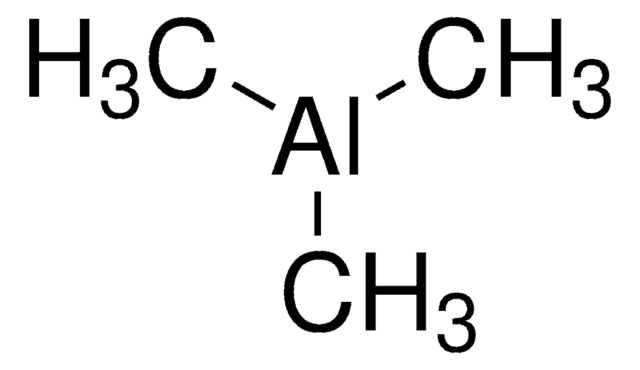380237
Tebbe reagent solution
0.5 M in toluene
Synonyme(s) :
Bis(cyclopentadienyl)-μ-chloro(dimethylaluminum)-μ-methylenetitanium
About This Item
Produits recommandés
Forme
liquid
Niveau de qualité
Capacité de réaction
reaction type: C-C Bond Formation
Concentration
0.5 M in toluene
Densité
0.927 g/mL at 25 °C
Chaîne SMILES
[CH]1[CH][CH][CH][CH]1.[CH]2[CH][CH][CH][CH]2.C[Al](C)C[Ti]Cl
InChI
1S/2C5H5.2CH3.CH2.Al.ClH.Ti/c2*1-2-4-5-3-1;;;;;;/h2*1-5H;2*1H3;1H2;;1H;/q;;;;;;;+1/p-1
Clé InChI
QEJAQNUJXFLWSP-UHFFFAOYSA-M
Vous recherchez des produits similaires ? Visite Guide de comparaison des produits
Catégories apparentées
Description générale
Application
- For the conversion of carbonyl groups of chlorophyll derivatives into the corresponding exo-methylene (or vinylidene) groups.
- In the synthesis of β-C-glycosides from 3-OH glycol esters.
- As a versatile methylenation reagent for the conversion of ketones and aldehydes to olefins. It offers facile reaction with hindered ketones and allows the conversion of esters to vinyl ethers.
- To olefinate aldehydes.
- To methylenate a chiral polyhydroxyketone with high diasteroselctivity.
Conditionnement
Informations légales
Mention d'avertissement
Danger
Mentions de danger
Classification des risques
Aquatic Chronic 3 - Asp. Tox. 1 - Eye Dam. 1 - Flam. Liq. 2 - Repr. 2 - Skin Corr. 1B - STOT RE 2 - STOT SE 3
Organes cibles
Central nervous system, Respiratory system
Code de la classe de stockage
3 - Flammable liquids
Classe de danger pour l'eau (WGK)
WGK 3
Point d'éclair (°F)
39.2 °F - closed cup
Point d'éclair (°C)
4 °C - closed cup
Équipement de protection individuelle
Faceshields, Gloves, Goggles, type ABEK (EN14387) respirator filter
Faites votre choix parmi les versions les plus récentes :
Déjà en possession de ce produit ?
Retrouvez la documentation relative aux produits que vous avez récemment achetés dans la Bibliothèque de documents.
Les clients ont également consulté
Articles
We carry a large variety of electrophiles and nucleophiles that are widely used in C–C bond-forming reactions. This group of products contains many organometallic reagents as well as commonly-used alkylating and acylating reagents.
Notre équipe de scientifiques dispose d'une expérience dans tous les secteurs de la recherche, notamment en sciences de la vie, science des matériaux, synthèse chimique, chromatographie, analyse et dans de nombreux autres domaines..
Contacter notre Service technique